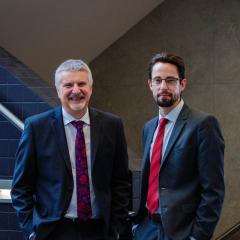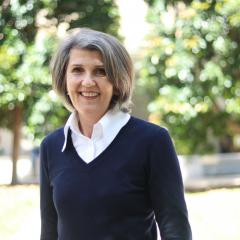The mortality rate for Australians living in remote areas is 1.3 times higher than that of Australians living in major cities – one significant contributor to this is access to health services.
UQ aims to address the workforce maldistribution of health professionals in Queensland’s Southwest with the establishment of Southern Queensland Rural Health (SQRH).
This Commonwealth-funded University Department of Rural Health (UDRH) is a newly formed partnership between The University of Queensland, the University of Southern Queensland, and Darling Downs and Southwest Hospital and Health Services.
SQRH is the first UDRH in Australia that has been established in formal collaboration with public health services.
It covers half a million kilometres, roughly the size of Victoria and Tasmania put together.
There are 15 UDRHs across Australia that share a common goal of improving the recruitment and retention of health professionals in regional and remote Australia by providing students with learning experiences and placements unique to those found in the city.
SQRH Director, Associate Professor Geoff Argus said rural health practice often relies on a more generalist and interprofessional focus where students have the opportunity to learn from, with and about each other by working closely with other health professionals in a range of settings such as hospitals, Aboriginal Medical Services, Queensland Ambulance Service and the Royal Flying Doctor Service.
“We want students to think about going rural once they graduate because we know that there are jobs and particular lifestyle benefits of which many students may be unaware,” Associate Professor Argus said.
SQRH is working with local Aboriginal Community Controlled Health Organisations to develop cultural immersion for students to help develop a deeper understanding of local issues facing Indigenous people.
“We want to broaden their awareness through actually working alongside Indigenous people rather than just learning about Indigenous people and Indigenous health by other means.”
Accommodation can be a big barrier for students working on rural placement so SQRH have worked with local councils to secure housing options for students.
“Communities are committed to investing in a positive student experience because they see students as their emerging workforce and want students to come back as health professionals and work in the communities because it’s absolutely important to them,” Associate Professor Argus said.
“Alongside their placement experiences, SQRH focuses on student involvement in the community. Local councils are heavily involved in their local communities, each of which is unique in terms of the social fabric. There are experiences that students get to take part in such as rodeos, the Melon Festival in Chinchilla and Charleville’s Bilby Festival.
“There’s good evidence that suggests that the longer a student spends in a rural community, as part of that community, the more likely they are to return. SQRH is about building students’ connection with the rural communities.
“We want students to have a sense of the workforce maldistribution of health professionals in Australia, the issues these rural communities face, and that they as students can be part of the solution.”
Words: Isobel Whiting-Davis



